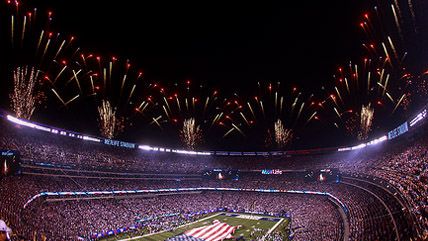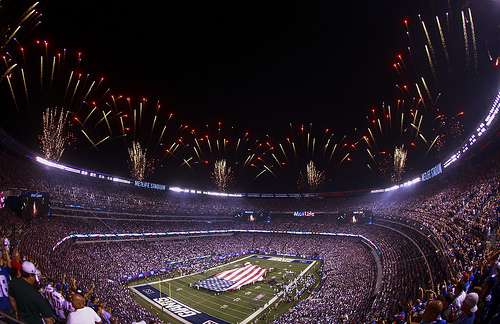Super Bowl Prediction: Taxpayers Lose


Who will win the Super Bowl? Computer simulations suggest it will be the Seahawks by a close margin. But, who will lose? That's a wholly different matter. Regardless of which team scores more touchdowns at MetLife Stadium on Sunday, taxpayers will likely walk away with an "L."
The state of New Jersey has already spent $17.7 million in preparation for the game, much of which has funded infrastructure upgrades for the temporary tourism boost. The Asbury Park Press explains that, "NJ Transit … spent a total of $12.4 million to support Super Bowl-related initiatives," such as extending subway platforms and building new bus service facilities. Not yet calculated is how much beefed-up local law enforcement will cost, though state attorney general's office spokesman Paul Loriquet asured the Press that "the single-digit millions of dollar range" would be a reasonable guess.
New Yorkers will foot the bill, too, since they are co-hosts. Gov. Andrew Cuomo has allotted $5 million of the state budget for Super Bowl-related matters. How will it be spent? The Times Union reports that "the host committee's spokeswoman has refused to take calls or answer most inquiries," but half the money will facilitate a Times Square celebration, $500,000 will wine and dine media personnel, and another $500,000 will fund promotional banners, posters, and scarves. Just like its neighbor, New York will bolster local law enforcement.
Even federal dollars will have some skin in the game. Because the Super Bowl is considered a Level I national security event, the FBI, the Department of Homeland Security, along with its subsidiary, the Customs and Border Protection agency, and even the Federal Aviation Administration will all be in attendance.
Though, none of these costs quite offsets the New York/New Jersey Super Bowl Host Committee's projections about economic stimulation. It has, like some politicians, assured that the game will generate a whopping $500-$600 million in activity for the cities.
Unfortunately, those numbers may be wishful thinking.
"The problem with the figures reported… is that they consider all spending associated with the Super Bowl as part of the overall economic impact. However, much of the spending that occurs does not directly improve the local economy, as visitors aren't necessarily buying what the local economy is selling," explains the financial transparency website NerdWallet. The site estimates that the impact will be 60-70 percent less than official estimates, or about $194 million.
Sports economist and Lake Forest College professor Robert Baade is less generous in his calculations. He believes that "$50 to $60 million would be a generous appraisal of what the Super Bowl generates." He previously conducted a study of several decades of Super Bowls; each "only accounted for about $32 million each in increased economic activity" in the host city.
For more Reason coverage of the often unseen cost of professional sports, watch Nick Gillespie's interview with Greg Eastbrook below:


Show Comments (23)